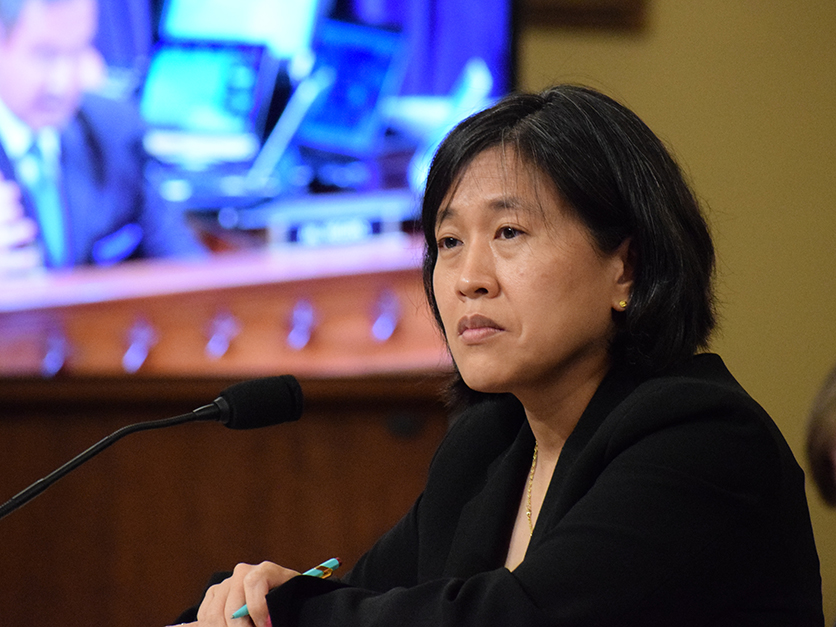U.S. Trade Representative Katherine Tai spoke Friday with her Chinese counterpart to explain U.S. concerns over outstanding issues from the “phase one” trade pact as well as Chinese “state-led, non-market policies and practices that harm American workers, farmers and businesses,” according to the Office of the USTR.
It was Tai’s second conversation with Chinese Vice Premier Liu He, but her first after the Biden administration finished its lengthy internal assessment of the U.S.-China trade relationship and announced that it was ready to engage with China directly.
Tai and senior USTR officials stressed before the meeting that the agency was not prepared to begin negotiating a second phase of the Economic and Trade Agreement between the Government of the United States of America and the Government of the People’s Republic of China, a pact more commonly known as the "phase one" deal. The deal was negotiated by the Trump administration and included a promise by China to buy about $80 billion worth of U.S. farm commodities over a two-year period that ends Dec. 31.
U.S. tariffs on Chinese goods imposed by the Trump administration remain firmly in place as the USTR restarts its process of exempting some U.S. companies from paying those taxes and U.S. ag exports continue to be impacted by Chinese retaliatory tariffs.
One senior USTR official told reporters Friday that the agency “will certainly be looking to get the best outcome that we can for our farmers … but we’re not going to initiate a phase two negotiation.”
The Biden administration's insistence that it's not ready to negotiate a new trade pact, lift tariffs or seek new purchase commitments from China is spurring criticism from the U.S. ag sector and some lawmakers.
“As the purchase commitments in the Phase 1 Agreement expire at the end of this year, American Farm Bureau supports further discussion between the U.S. and China to continue a set of purchase commitments by China for U.S. agricultural products,” Farm Bureau President Zippy Duvall told Tai and Ag Secretary Tom Vilsack in an Aug. 30 letter.
In response to Tai's recent speech, Texas Rep. Kevin Brady, the ranking Republican on the House Ways and Means Committee, argued the U.S. could “better confront China by proceeding to Phase Two negotiations, or through high-standard new trade agreements that strengthen economic partnerships with our allies.”
Interested in more news on farm programs, trade and rural issues? Sign up for a four-week free trial to Agri-Pulse. You’ll receive our content — absolutely free — during the trial period.
But there are still unresolved issues in “phase one,” including ag issues such as China’s unfilled pledge to overhaul its process for approving genetically modified traits. That’s one of the “outstanding issues” that the Office of the USTR mentioned in its press release after the Tai-Liu meeting Friday night.
China’s biotech approval process is slow and opaque. It is the only major grain and oilseed importer that operates an “asynchronous” approval process for biotech traits, meaning that the country refuses to begin an approval of a new trait until after a cultivating country like the U.S., Brazil, Argentina or India first finishes the process. U.S. trade officials say that talks have been ongoing with China to reform this process since “phase one” was implemented last year.
The direct engagement with China over unfinished “phase one” issues and the new overall approach to the U.S. “bilateral trade relationship with China” that creates a “level playing field” for U.S. producers and exporters will continue, senior USTR officials said.
As to the exact next steps, one official said Friday, “China’s response to our comments … will be important and will certainly influence our next steps and the conversation ahead.” Tai, the Office of the USTR said, “looks forward to following up with Vice Premier Liu in the near future.”
For more news, go to www.Agri-Pulse.com.


